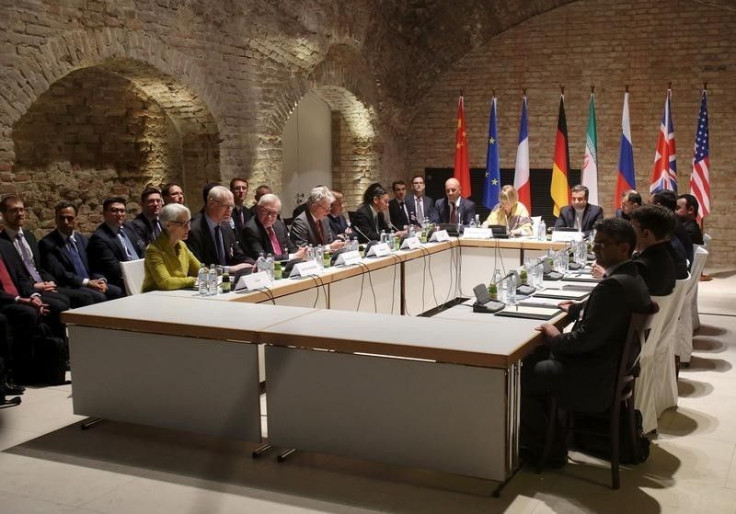US, Allies Ready To Offer Nuclear Equipment To Iran In Exchange For Limits On Weapons Program: Report

The United States and other Western nations attempting to finalize a nuclear deal with Iran are willing to offer the latter state-of-the-art nuclear equipment, including high-tech reactors, if it agrees to pare down its program to develop nuclear weapons, the Associated Press (AP) reported Wednesday, citing a “confidential document.”
The document, which AP reported is part of the main text of the agreement to be finalized by June 30, promises Iran a supply of light-water nuclear reactors instead of the heavy-water facility that is currently under construction near Arak in western Iran. In order to produce weapons-grade plutonium using a light-water reactor, greater quantities of fissile material are needed.
The protracted negotiations between Iran and the P5 +1 nations -- the U.S., U.K., Russia, France, China and Germany -- have aimed to significantly downsize Iran’s nuclear program, which, the West claims, is focused on manufacturing nuclear weapons. Iran, however, has rejected these allegations and has consistently insisted that its program is solely for peaceful purposes.
The draft, dated June 19, promises “arrangements for the assured supply and removal of nuclear fuel for each reactor provided,” and offers help in the “construction and effective operation” of the reactors, AP reported. Additionally, it also offers cooperation with Iran in the fields of nuclear safety, nuclear medicine, research and nuclear waste removal.
According to AP, the U.S. and its negotiating partners hope to eliminate the possibility of Iran attempting to expand its programs to produce arms once a pact limiting its ability do so expires after 10 years.
However, in a speech broadcast live on Tuesday, Iran's Supreme Leader Ayatollah Ali Khamenei ruled out freezing sensitive nuclear work in the country for 10 years, reportedly terming it “unacceptable,” and said that international inspectors would not be given access to Iran’s nuclear sites.
“Inspection of our military sites is out of the question and is one of our red lines,” Khamenei reportedly said.
Furthermore, a clause in the draft that might potentially face opposition from members of the U.S. Congress relates to the heavily-fortified underground Fordo facility, near the city of Qom.
Iran, which in 2011 had disclosed plans to produce medium-enriched uranium -- at a 20 percent concentration of uranium-235 -- at the facility, is currently believed to be using Fordo to produce uranium enriched up to 5 percent.
The document accessed by AP reportedly calls for Iran to repurpose the facility to use it solely for isotope production. But, given that such a proposal would allow Iran to keep technology that could be quickly repurposed for uranium enrichment, it is likely to be unpalatable to many Congressional opponents of the deal in the U.S.
© Copyright IBTimes 2025. All rights reserved.






















